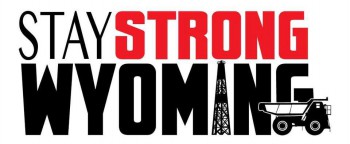(Casper Star Tribune, April 9) – A task force will begin a two-year study Thursday on how to simplify taxes on coal, oil, gas and other minerals.
Rewriting the tax code has come at the request of the minerals industry, but observers say changes must be revenue-neutral so that state and county coffers don’t decrease.
Severance taxes, assessed when a mineral is removed or severed from the ground, and ad valorem taxes, akin to property taxes on minerals, provide a large amount of state and local revenues.
Both types of taxes will be studied. The oil, gas and coal industries have the most problems with the current tax structure, said Rep. Mike Madden, R-Buffalo, a co-chairman of the Joint Revenue Committee and the Task Force on Mineral Taxes, which was created in Februaryby the Wyoming Legislature.
The task force will meet at least four times this year and next year, including the first meeting Thursday and Fridayin Cheyenne. By the end of 2016, it will submit recommendations to the Joint Revenue Committee, and the committee will sponsor a bill to change the tax structure, Madden said.
With oil and gas, “We don’t have a nice, clean ownership of the wells,” Madden said, and there are questions over who is responsible to pay taxes.
Sometimes the owner of the minerals enters into a partnership with a drilling and exploration company. Sometimes, partnerships merge or divest, he said.
“In the case of oil wells, it’s a moving target,” he said.
Oil and gas producers are required to submit tax forms detailing their costs and revenue every month, but often, they submit estimates and more accurate information months later, Madden said.
“We want to find out why it takes so long for these notices of value to come in” from the oil and gas industry, he said. “We’re going to hear about all the reasons the change of value can arise.”
Bruce Hinchey, president of the Petroleum Association of Wyoming, said he would like the state to combine the severance and ad valorem taxes.
“That would certainly cut down on audits and disagreements of where things have been in the past,” he said.
With coal, much of the discussion has revolved around what’s called the mouth or entrance of a mine. The mouth of the mine is the point where coal is valued for tax purposes, said Larry Wolfe of Cheyenne, the public representative on the task force.
Currently, companies have to pay taxes on coal mined inside the pit. But they do not pay taxes on crushing, processing and railroad loading or other activities outside the mouth of the mine because they’re adding value, Wolfe said.
Coal companies are saying the mines are expanding further away from the railroad loading facilities and they are incurring more expenses – and paying more taxes – from inside the pit, Wolfe said. They want a more fair tax structure, he said.
In 2012, the Legislature considered – and rejected — a bill that would have changed the way coal is valued. Since then, the mining industry has pressed for a study on the issue, Wolfe said.
Jonathan Downing, executive director of the Wyoming Mining Association, said the tax system is complicated.
“That’s where the study part is needed as far as what’s the best way to do this,” he said.
Jill Morrison of the Sheridan-based Powder River Basin Resource Council, a landowner advocacy group, is concerned membership of the task force is weighted toward the minerals industry.
“These are public minerals, these are a finite resource,” she said. “They get one time to be taxed. I understand industry’s concern to streamline the taxation or simplify it, but we have to be sure that the public is getting a fair value from those taxes.”
Brianna Jones of the Cheyenne-based Equality State Policy Center, which works on local and state government accountability, said the organization will carefully track the process.
“It’s a great opportunity to simplify how taxes are assessed, which should be more understandable and transparent,” she said. “But all adjustments need to maintain current revenue levels.”
